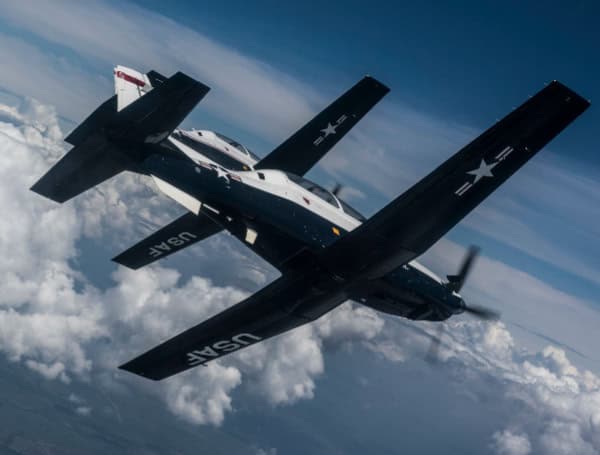The world of military aviation is inherently dangerous, with pilots facing immense risks every time they take to the skies.
Tragically, the recent spate of Air Force accidents and fatalities has shaken the very foundations of this elite community.
From the devastating loss of an instructor pilot at Sheppard Air Force Base in Texas to the heartbreaking incident at Joint Base Elmendorf-Richardson in Alaska, these incidents have raised urgent questions about the safety and reliability of critical aircraft systems.
Read: Body-Cam Footage Of Florida Deputy Shooting And Killing U.S. Airman Released
On a seemingly routine training mission at Sheppard Air Force Base in Wichita Falls, Texas, on Monday, a devastating accident occurred.
An Air Force instructor pilot, Captain John Robertson, was fatally injured when the ejection seat of his T-6A Texan II aircraft activated while the plane was on the ground.
Despite the immediate and heroic efforts of the base’s maintenance team, security forces, fire, and medical personnel, Captain Robertson succumbed to his injuries Tuesday morning at the United Regional Hospital, with his family by his side.
The T-6A Texan II is a single-engine, two-seat training aircraft that serves as the primary trainer for student pilots in the Air Force, Navy, and Marine Corps.
These aircraft are equipped with lightweight Martin-Baker ejection seats, which can be activated by the pilot or instructor in the event of an emergency. However, as the investigation into this tragic incident unfolds, the spotlight has shifted to the reliability and safety of these critical systems.
Read: UF Scientist, Veteran Wins National Award For Program Connecting Military Personnel To Ag Careers
An interim safety board investigation was immediately convened following the Sheppard Air Force Base incident, and an Air Force Safety Investigation Board is expected to take over the inquiry in the coming days. The board’s findings, when released, will shed light on the root cause of the accident and any potential issues with the ejection seat or other aircraft systems.
This incident comes on the heels of a broader concern that emerged in 2022, when the Air Force, Navy, and Marine Corps grounded a significant portion of their combat training and primary training aircraft to review the safety of a potentially defective ejection seat component – specifically, the cartridge-actuated device that activates the ejection sequence.
Just eight weeks prior to the Sheppard Air Force Base incident, the Air Force suffered another tragic loss. On March 15th, an airman was fatally injured while performing maintenance on an F-22 fighter jet at the Joint Base Elmendorf-Richardson in Alaska. The victim, 25-year-old Staff Sgt. Charles A. Crumlett, was a weapons lead crew chief with the 90th Fighter Generation Squadron.
These incidents are part of a broader trend that has seen the number of deadly and expensive aviation mishaps among Air Force personnel reach a five-year high in 2023.
Read: Gov. DeSantis Awards $2.3 Million To Florida’s Military Communities
According to reports, the Air Force experienced 75 major non-combat mishaps last year, a significant increase from the previous year. These incidents have claimed the lives of two individuals and resulted in the destruction of 10 aircraft.
Investigations into these accidents have revealed that more than 28% of reported incidents occurred while the aircraft was grounded, suggesting that maintenance-related issues may be a contributing factor. Additionally, the Air Force has faced challenges with the reliability of its ejection seat systems, with failures being identified as a partial cause of some crashes.
Help support the Tampa Free Press by making any small donation by clicking here.
Android Users, Click To Download The Tampa Free Press App And Never Miss A Story. Follow Us On Facebook and Twitter. Sign up for our free newsletter.
